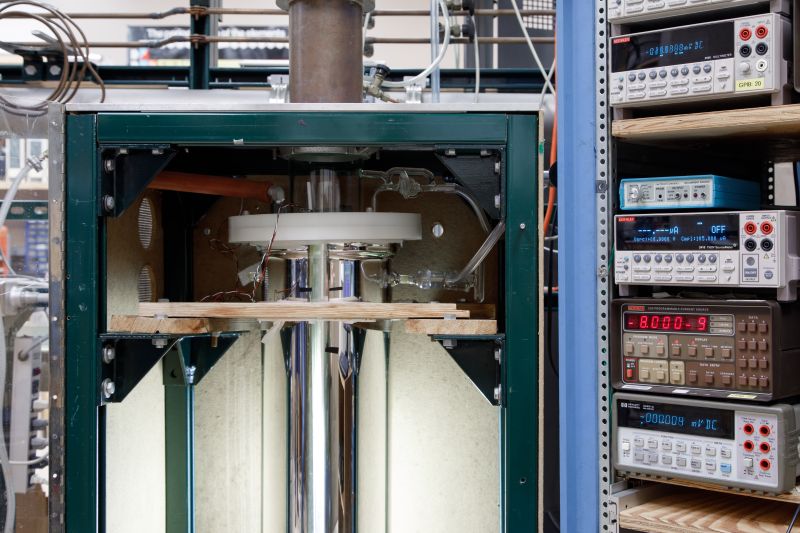Superconducting material stabilized at everyday pressure, another step toward real-world applications
U.S. National Science Foundation-funded researchers have stabilized a composite material in a superconducting state at ambient or normal, everyday pressure. Their technique, called the "pressure-quench protocol," offers a new approach for exploring and developing superconducting materials. Superconducting materials have the potential to enable highly efficient electronic devices and minimal energy loss in power grids.
Superconducting materials typically exhibit zero electrical resistance only at very low temperatures or very high pressures, depending on the material. Researchers at the University of Houston overcame these limitations by using their pressure-quench technique to stabilize a composite of bismuth, antimony and tellurium in a superconducting state under ambient pressure. This study, published in Proceedings of the National Academy of Sciences, also included contributions from researchers at the University at Buffalo and the University of Illinois Chicago.

Credit: Liangzi Deng and Ching-Wu Chu
The new protocol also opens up a new way to explore material phases that usually exist only under extreme pressure. "It should help our search for superconductors with higher transition temperatures," says Paul Ching-Wu Chu, a study author and professor of physics at the University of Houston.
"The technique used in this study not only demonstrates potential for understanding how materials can be superconductive in everyday conditions — it's a new way to create states of matter that we have not seen before in particular materials," says John Schlueter, program director in the NSF Division of Materials Research, which supported the work.
Legal Disclaimer:
EIN Presswire provides this news content "as is" without warranty of any kind. We do not accept any responsibility or liability for the accuracy, content, images, videos, licenses, completeness, legality, or reliability of the information contained in this article. If you have any complaints or copyright issues related to this article, kindly contact the author above.
